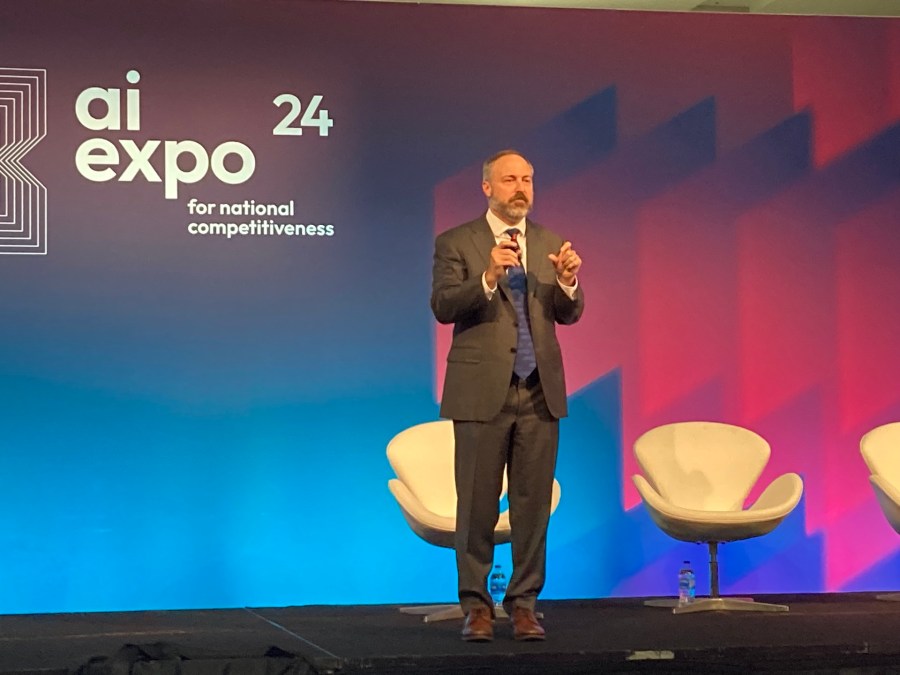
Microsoft has deployed the GPT-4 large language model in an isolated, air-gapped Azure Government Top Secret cloud for use by the Department of Defense, the company announced Tuesday.
Once the tool is accredited, Pentagon officials will be able to use the technology in a secure environment.
“When you’re connected to the internet, you’re always having to defend against people probing and trying to wreak havoc. And so now you’ve got an isolated and an air-gapped environment …. Now we have the capability that we have in the unclassified side, in that [top-secret] environment for the very first time. So all of the tools … you see around here, people using this, is now available for those type of [top-secret] uses,” William Chappell, chief technology officer for strategic missions and technologies, told DefenseScoop during an interview on the sidelines of an AI expo hosted by the Special Competitive Studies Project, where he announced the deployment.
The technology will help DOD officials deal with vast amounts of data, he said.
It’s about “making sure you have the right information at the right time. So whether it’s geospatial or any amount of data, we’re swimming in data, we’ve got sensors everywhere. How do you actually make sense of the information that is within your organization? Whether that’s proposals or all sorts of different types of paperwork that we all have to do — how do you simplify and how you sort through that … data that’s mission focused or data that’s more back office and human resource-focused?”
Microsoft is a major investor in OpenAI, the maker of GPT-4 and the popular ChatGPT.
Pentagon officials aim to leverage generative AI capabilities such as large language models, but they want to acquire solutions that won’t expose classified information to unauthorized individuals. They also want capabilities that can be tailored to meet DOD’s unique needs.
With the GPT-4 capability that Microsoft has deployed via Azure OpenAI Service in Azure Government Top Secret, “they can fine tune it, they can add their own data, they can do a bunch of things… They’ll build unique workflows on top of that, specific to their mission,” Chappell said.
“OpenAI is, in my opinion, best in class. And then we built security Copilot and we built M 365 Copilot … That intelligence that’s under the hood is then picked up out of the commercial domain, out of our product suite, and then over so that the government can build those similar type of applications,” he told DefenseScoop.
He declined to predict when the GPT-4 tool will be accredited for top-secret work.
“I don’t want to say an exact date because the government has a say. Right? So we’ll be working hand-in-hand with the government from this moment, now that it will actually write code and give you information, to how we harness stuff, how’s it deployed, you know, the right way and make sure it’s presented to the end user the right way. That’s part of the accreditation process that they really control,” he said.



